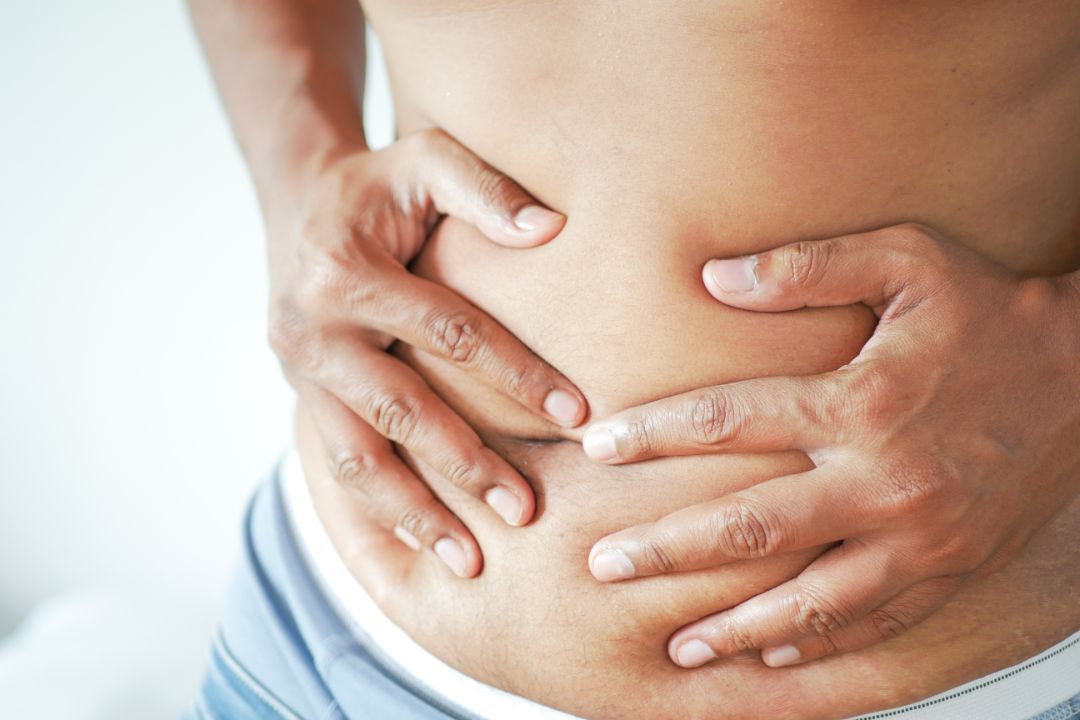Faecal incontinence, also known as bowel incontinence or fecal incontinence, is a condition that affects many people, yet it is still considered a taboo topic. It is the inability to control bowel movements, resulting in the accidental release of faeces or gas from the rectum.
Faecal incontinence can be caused by a range of factors, including nerve damage, muscle weakness, or injury to the anus or rectum. It is more common in women than men and can be associated with aging or certain medical conditions such as diabetes or multiple sclerosis.
Faecal incontinence is a condition that affects a person’s ability to control their bowel movements. It can range from an occasional leakage of stool to a complete loss of bowel control. Due to the condition, individuals may experience embarrassment and a diminished quality of life.

Photo Credit: TheAtticoStudioPhoto, Envato
Several names, including anal incontinence and accidental bowel leakage, can refer to faecal incontinence. It can result from a variety of factors, such as damage to the anal sphincter muscles, nerve damage, and bowel disorders.
“Faecal incontinence can significantly impact a person’s life, including their emotional well-being,” says Dr. Jane Smith, a gastroenterologist. “It’s important to understand the condition and seek appropriate treatment to manage it effectively.”
Individuals may experience challenges in their daily lives, such as difficulty leaving the house or participating in social activities. Understanding the condition and its causes can help individuals better manage and cope with the challenges of faecal incontinence.
Faecal incontinence can be caused by a variety of factors, including damage to the anal sphincter muscles, nerve damage, and digestive system disorders such as inflammatory bowel disease. Other contributing factors may include age, pregnancy, and certain medications.
The symptoms can vary but typically include the accidental passing of stool or the inability to control bowel movements. Individuals may also experience recurring constipation or diarrhea, which can worsen symptoms.
It’s important to speak with a healthcare professional if you experience symptoms of faecal incontinence, as there may be underlying medical conditions that need to be addressed.
Diagnosis of faecal incontinence often involves a physical exam and medical history review. Additional tests may be recommended, including anal manometry to measure muscle function, or anorectal ultrasound to evaluate internal structures.
In some cases, diagnostic testing may include a defecating proctography, which is a type of X-ray that evaluates the rectum and pelvic floor muscles during defecation. This can provide valuable information about muscle function and potential causes of faecal incontinence.
Some of the most common causes of faecal incontinence include:
It’s important to note that this condition can affect individuals of all ages and backgrounds, and treatment options are available to help manage the condition and improve quality of life.

Photo Credit: towfiqu98, Envato
There are various effective treatment options available for individuals dealing with faecal incontinence. Treatment will depend on the severity of the condition, the underlying causes, and other factors like age and overall health.
Pelvic floor exercises like Kegels can help strengthen the muscles that control bowel movements. Biofeedback therapy uses sensors to monitor muscle activity and provide feedback to help individuals learn how to control their muscles better. These non-invasive treatments can be effective in improving bowel control in some individuals.
Changes to diet can also help alleviate symptoms of faecal incontinence. Avoiding foods that cause diarrhea, such as spicy and fatty foods, can help regulate bowel movements. Increasing fibre intake can also help prevent constipation.
There are various medications available that can help manage faecal incontinence. Anti-diarrheal medications can help control bowel movements, while laxatives can help prevent constipation. Other medications, such as muscle relaxants and nerve blockers, may also be prescribed by a doctor.
If other treatments are ineffective, surgery may be an option. This could involve repairing or removing damaged muscles or nerves, or creating a new bowel outlet. Surgery is typically only recommended for severe cases of faecal incontinence.
In addition to the above treatments, various lifestyle changes and management techniques can help individuals cope with faecal incontinence. This may include keeping a bowel diary to track bowel movements, using absorbent products like pads and diapers, and carefully planning bathroom trips.
Faecal incontinence can be a challenging condition to live with, but effective treatments are available. It’s important to work with a healthcare professional to determine the best approach for managing symptoms and regaining bowel control. Individuals can lead a comfortable and fulfilling life with the right treatment plan and lifestyle adjustments.
Living with faecal incontinence can be challenging, both physically and emotionally. However, it is possible to manage the condition effectively with the right support and lifestyle changes.
Understanding and managing your bowel habits is crucial when coping with faecal incontinence. This means taking steps to prevent constipation and diarrhoea, both of which can worsen symptoms.
Eating a diet rich in fibre, drinking plenty of water, and exercising regularly can help regulate bowel movements. It is also essential to avoid foods and drinks that can trigger diarrhoea or constipation, such as spicy food, caffeine, and alcohol.
Living with faecal incontinence can be embarrassing, but it is crucial to remember that you are not alone. It is estimated that up to five percent of adults experience faecal incontinence, so it is a relatively common condition.

Photo Credit: halfpoint, Envato
You can use several coping mechanisms to manage embarrassment, such as carrying a spare change of clothes or using incontinence pads. It is also helpful to talk to a healthcare professional or a support group to get advice and support.
Living with faecal incontinence can be isolating, but seeking support from loved ones, healthcare professionals, or support groups is essential. Talking about your experiences can help reduce anxiety and stress and provide you with valuable information and resources.
It is essential to find a healthcare provider who is knowledgeable about faecal incontinence and can provide you with the necessary treatment and support. They can also refer you to a specialist if needed.
In conclusion, coping with faecal incontinence requires a multi-faceted approach that involves managing bowel habits, dealing with embarrassment, and seeking support. With the right care, leading a fulfilling and active life is possible.
Treatment for faecal incontinence in adults can involve dietary changes, medication, pelvic floor exercises, biofeedback, bowel training, sacral nerve stimulation, or in some cases, surgery. The appropriate treatment depends on the underlying cause of the incontinence.
You should seek medical attention if you regularly have bowel incontinence that affects your quality of life or if it’s associated with other symptoms like abdominal pain, unexplained weight loss, or blood in stool. It could signal a more serious condition that requires treatment.
Causes of faecal incontinence can include muscle damage or weakness around the rectum, nerve damage, chronic constipation, diarrhoea, inflammatory bowel disease, rectal prolapse, rectocele, and certain neurological conditions like multiple sclerosis or Parkinson’s disease.
Yes, bowel leakage, or faecal incontinence, can often be effectively managed or treated. The appropriate treatment depends on the severity and underlying cause of the condition. This may range from lifestyle changes and medications to biofeedback therapy and surgery.
As of my knowledge cutoff in September 2021, one of the newer treatments for bowel incontinence is sacral nerve stimulation, where a device is implanted to send electrical impulses to the nerves controlling the bowel. More recent developments may have occurred since then.
Natural strategies to manage bowel incontinence can include dietary changes, such as eating high-fiber foods and avoiding foods that trigger diarrhoea, and pelvic floor exercises to strengthen the muscles around the anus. Maintaining a healthy weight and regular physical activity can also be beneficial. Always consult a healthcare professional for personalized advice.